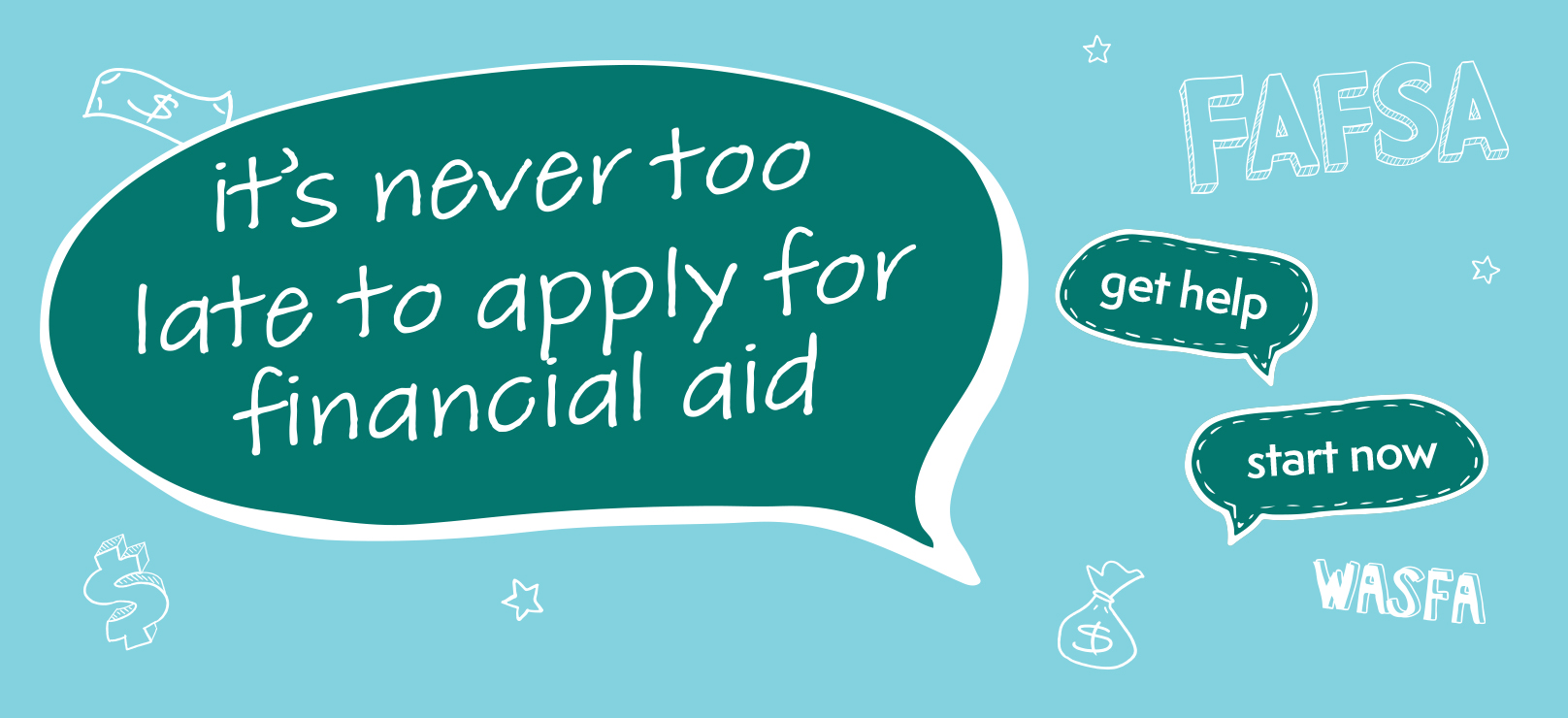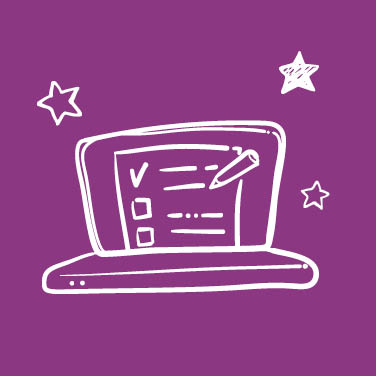
Why complete the FAFSA?
The only way to qualify for financial aid for college or career training is to complete the FAFSA (Free Application for Federal Student Aid)—or in limited cases the WASFA (Washington Application for State Financial Aid).
Apply now for 2024-25 or 2025-26 financial aid!
Start or continue the FAFSA (most people)
Undocumented students and others who choose not to complete a FAFSA can apply for state aid using the WASFA.
Learn more and apply with WASFA
Finish your FAFSA form as soon as possible.
Despite some challenges with the new FAFSA form, it’s worth completing your application now because:
- The form is shorter and easier! Applying is the only way to know how much money you can get.
- More money is available! More people are eligible to receive federal Pell Grants, and the average grant is expected to be larger.
- Washington State aid is generous and flexible! The WA Grant program gives eligible people more money for more types of education like certificate programs, job training, apprenticeships, or college—and the FAFSA is the first step for that, too.
Don't give up! Colleges know some people are running into issues with the FAFSA and many are being flexible.

 |
Watch our videos for more FAFSA help and information
|
Finish your FAFSA form as soon as possible
Despite some challenges with the new FAFSA form, it’s worth completing your application now because:
- The form is shorter and easier! Applying is the only way to know how much money you can get.
- More money is available! More people are eligible to receive federal Pell Grants, and the average grant is expected to be larger.
- Washington State aid is generous and flexible! The WA Grant program gives eligible people more money for more types of education like certificate programs, job training, apprenticeships, or college—and the FAFSA is the first step for that, too.
Don't give up! Colleges know some people are running into issues with the FAFSA and many are being flexible.

 |
Watch our videos for more FAFSA help and information
|
Need more encouragement?
In Washington, about half of families qualify for financial aid to help cover tuition, school supplies including computers, and living expenses for college, training, certificate programs, and apprenticeships. In many cases, tuition could even be free. Use the financial aid calculator to see how much you could receive.

We’re in this together—and we’re here to help.
You have many resources available to help you navigate the FAFSA process.
- At your school: Talk to your high school counselor or college & career specialist about your specific questions and circumstances.
- In your community: Attend a local or virtual financial aid event to get answers to your questions and support in completing applications.
- Via text: OtterBot financial aid support is available 24/7.
- Online: Check out our overview video to learn more about financial aid, or walk through the application step-by-step with our FAFSA demo videos.
- From FAFSA administrators: If you have technical issues with your FAFSA, contact Federal Student Aid (FSA) for support.
- At the college: Reach out to the financial aid office at any college or training program you plan to attend.
We’re in this together—and we’re here to help.
You have many resources available to help you navigate the FAFSA process.
- At your school: Talk to your high school counselor or college & career specialist about your specific questions and circumstances.
- In your community: Attend a local or virtual financial aid event to get answers to your questions and support in completing applications.
- Via text: OtterBot financial aid support is available 24/7.
- Online: Check out our overview video to learn more about financial aid, or walk through the application step-by-step with our FAFSA demo videos.
- From FAFSA administrators: If you have technical issues with your FAFSA, contact Federal Student Aid (FSA) for support.
- At the college: Reach out to the financial aid office at any college or training program you plan to attend.

What are the challenges with the FAFSA process?
Many people have had no problem applying with the new FAFSA form, and it really is quick and easy for most. However, there are some known issues:
- Because of the new FAFSA, colleges will have to process more applications in less time, so expect financial aid offers to be delayed.
- While financial aid offers will arrive later than usual this year, many colleges have adjusted deadlines to be flexible.
- Most colleges have priority consideration dates or deadlines that you should know and follow. But even if you miss the priority dates, you should still apply for financial aid—you may still be eligible.
- Certain categories of students and families are more likely to have trouble applying. If any of the following apply to you, we encourage you to reach out to the financial aid office at your college(s):
- Families who did not file taxes in 2022: You will likely need to file taxes before submitting a FAFSA.
- Owners of income-producing farms: Farm assets are being calculated differently than in prior years.
- Mixed status families: Parents and guardians without a social security number (SSN) are more likely to experience technical difficulties with the application, but previous issues that prevented these family members from contributing to the FAFSA have been resolved. Please note, parents and guardians without an SSN cannot import income information from the IRS, so will need to enter this data manually.
 Skip to main content
Skip to main content



